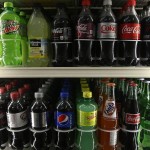That big civil case between California and the charter-school operator K12 has been settled for $168.2 million, the state’s attorney general says. But the company says that’s wrong by more than a hundred million dollars.
The Wall Street Journal backgrounds that the company is “… a remote-learning, charter-school operator that was accused of violating advertising and competition rules” and that “… the settlement also covered 14 nonprofit schools known as the California Virtual Academies, or CAVA schools, affiliated with K12. The company manages 15 nonprofit virtual charter schools throughout California serving about 13,000 K-12 students, the attorney general said in a press release announcing the settlement.”
But the WSJ also notes that “… K12 said in response that the attorney general’s office ‘mischaracterized’ the settlement and the company added that it has made no admission of wrongdoing. According to the Herndon, Va., company’s statement, the $168.5 million figure cited by California authorities was “flat wrong.” The company said that the settlement was only $2.5 million.” Says the firm: “… K12 will be making an $8.5 million payment to the state,” it said. “Of that amount, $6.0 million is to defray the cost to taxpayers of the Attorney General’s investigation, and $2.5M are settlement costs related to the separate private lawsuit alleging misreporting of attendance at the CAVA schools.”
Read the WSJ report here: California Reaches Settlement With K12 Over False Claims Allegations

